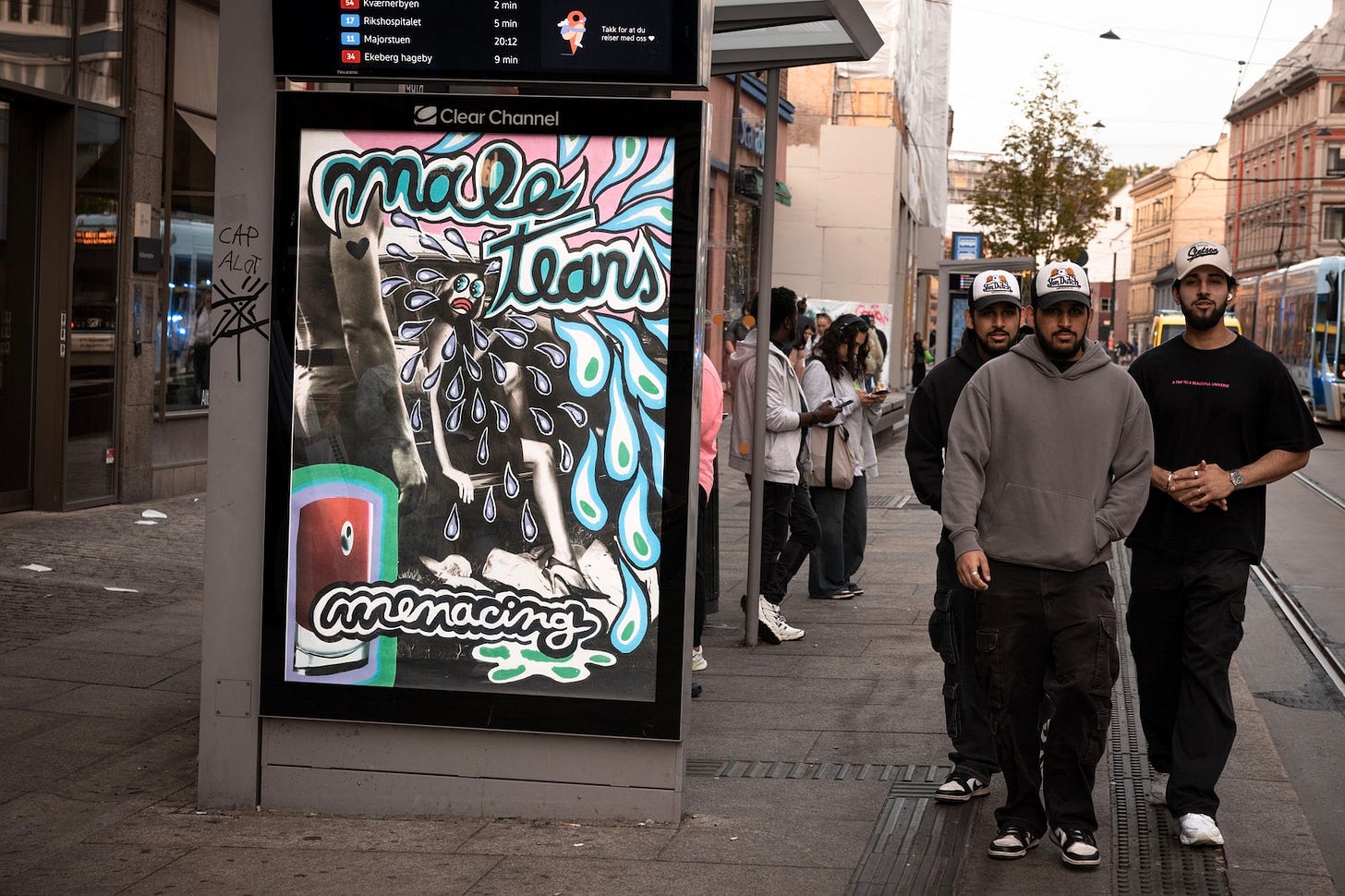You are (not) your thoughts
Sometimes I wonder if what I do matters. Especially now, in the face of the absolute horrors of being almost one year into an ongoing live-streamed genocide that no-one seems to be able to stop. I ask myself if I’m using my time here right. As I think people should, even if it’s not necessarily a pleasant question to reflect on.
I’m in the middle of a very intense period of producing artists and exhibitions, and it can consume me a little bit, which is why I worry that I’m loosing sight of what is truly important to me. But I do also believe that in order to create any meaningful change in the world, you have to actually and materially change the world. And perhaps that is why I so enjoy working with street art. Because I get to see first-hand how people have the limits of their imagination challenged daily, when they see what the artists we work with can do.
This week I was in the gallery-space where we’re hosting our exhibitions series Dog Days 4.0, which is an annual exhibitions series we started in 2021, in our little office/micro-gallery space. This year we are doing it in a proper gallery-space, at Gamle Munch (the old Munch Museum in Oslo), which means that we are reaching more people with our project, and a broader audience, which can lead to interesting conversations.
Like yesterday, when I was showing a group of women around in the current exhibition, Male Tears, by Hello the Mushroom:
“Male Tears is a collaborative project between Oslo Street Art Festival and the art collective Subvertising Norway. The exhibition is based around a concept of advertisements for a fake perfume brand, Male Tears, designed by the artist Hello The Mushroom, which forms a tongue-in-cheek commentary about rigid gender roles.
In the words of the artist:
As we all know boys don’t cry, therefore making male tears an extremely precious and valuable commodity. In our society men are expected to behave differently from women as if our biology is completely alien from each other. Therefore, it is important to at least have conversations around this topic - without pointing fingers or creating an us vs them environment. If we have to take one thing away from this event it is that treating men as incapable of human emotion does a disservice to all mankind.”
I was talking with the women about how advertisement impacts and upholds certain cultural expectations, which is why I think it’s so incredibly important to challenge who has the power to create meaning in public space. We were talking about privilege, the patriarchy, and capitalism, and how advertising can be a propaganda-machine for the status quo that more often than not favors the people in power, and they were nodding, and enjoyed hearing about the project. As usual, when I have conversations with people about unsanctioned art, tagging came up. Usually it comes the form of “I like this, but I wish taggers would stop, because its ugly/vandalism/disrespectful, and I just don’t get why they don’t want to make something nice like this”. And sure enough, one of the women told me about how a tag had appeared outside her office-building, and how it completely destroyed the wall. So I looked at her and said: “How? How exactly was this tag destroying or damaging the wall it was painted on?”
I could tell by her confused look that no one had really asked her that before, and she had no answer apart from that it was ugly to her, that it was a cost for them to paint over the tag, and that is was destructive/disrespectful behavior. None of which had anything to do with the structural integrity or function of the wall, so I asked her again how the wall was destroyed by the tag, before I pointed out that owning a wall in this society is a privilege born from money, the same exact privilege that she moments ago agreed was a problem within the context of advertisements.
Sometimes I wonder if we really even know how to think. Or rather, why we stop thinking a thought through. We seem to stop thinking the thought just before it gets uncomfortable, where the thought might mean that something needs to change because of what we’re realizing, or that we have to give something up.
Our thoughts and opinions about something are tied to our identity, to who we think we are, or should be, which is probably why it can feel a little dangerous to truly finish a thought. When was the last time you reached a thought that made you re-evaluate something? That made you think, huh, hadn’t thought about it that way before.
Do you go looking for them?




